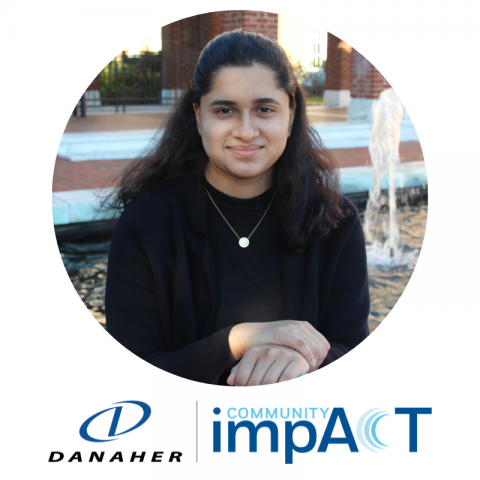ARCS Metro Washington Scholar Sheila Iyer has always been fascinated with puzzles since she was a child, and to her, studying DNA is like piecing together a complicated puzzle with great ramifications for public health. She engages in research as a way to creatively unpack the hidden secrets of the human genome.
Her first project was looking into genome sequence alignment and the bias associated with this process. “The analogy I use is that the way the genome is sequenced is first we chop it up into small pieces, which are called reads,” she explains. “We reconstruct the genome by aligning the reads to the human reference genome, like how you fit puzzle pieces together to match the final image.” There are special DNA sequence alignment tools that work to do this process. “We studied how these tools are biased and tried to find ways to improve them so our analysis of DNA is more accurate.”
Diversifying her research portfolio, Iyer delved into nuclear mitochondrial DNA, exploring how to assemble mitochondrial DNA fragments that have been inserted into the cell’s nucleus. “Essentially, parts of the mitochondrial DNA can come into the nucleus and can perturb the function of important genes, including cancer-causing genes,” she says.
What really captured her interest was “looking into how studying our genes and genomics can shed insight into how diseases work,” she says. Understanding and knowing how genes can impact disease is another meticulous puzzle to Iyer. And she uses bioinformatic tools to gather insights from DNA to solve that puzzle.
Currently pursuing a double major in Biomedical Engineering and Computer Science at Johns Hopkins University, Iyer continues her quest for scientific discovery under the mentorship of Dr. Mary Armanios, who runs a research lab at the JHU School of Medicine. The lab investigates the role of telomeres, the protective ends of DNA, in cancer predisposition, unraveling yet another layer of the genetic puzzle.
Since a medical doctor runs Iyer’s lab, she can study mutations from people with these telomere diseases and the specific mutations in their genes. "We're trying to understand, biologically, how their disease is caused, research how it is occurring, assess their risk and hopefully treat them better," she explains, highlighting the practical applications and impact of their research.
National DNA Day is April 25th, and when prompted to share why studying DNA is important, Iyer shares, “There are so many examples of how genomics can shed light on disease and help create a personalized treatment plan for patients, like the discovery of BRCA genes for breast cancer. She also gave COVID as an example because once the virus was established, scientists sequenced its genome immediately, which led to the vaccine’s creation at record speed.
Iyer shares her gratitude for being an ARCS Scholar recipient as part of the Danaher Grant. “ARCS is an amazing organization with its history of being developed during the Cold War and the Space Race and giving aid to motivate scientific innovation and exploration,” she shares, “It’s great to have the support and backing of this wonderful community.”

